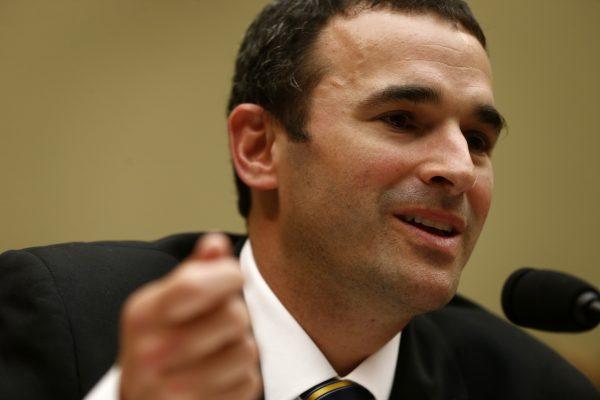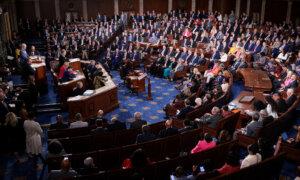The bill is accompanied by Trump-era tax breaks for businesses.
Child tax credit refunds could be issued within “a matter of weeks” if a new bipartisan tax package is enacted, IRS Commissioner Danny Werfel told lawmakers on Capitol Hill during a hearing on Feb. 15.
Questioned by House Ways and Means chairman Jason Smith (R-Mo.) over how fast the agency would be able to make the child tax credit adjustments, Mr. Werfel said: “We gave you a range of six to 12 weeks required for implementation from the point of enactment.
“The reason we give a range is because we need to see the final language. But I’m committed to working diligently to make sure we’re closer to the six-week end of that range than the 12-week.”
The IRS commissioner added he would make it “a top priority” to ensure the agency moves as quickly as possible to implement the changes.”
If passed, the legislation—penned by Mr. Smith and Senate Finance Committee chair Ron Wyden (D-Ore.)—would incrementally increase the refundable portion of the child tax credit, raising it from $1,800 to $1,900 and then to $2,000 for each tax year from 2023 to 2025.
Currently, the tax credit is $2,000 per child, but not all of that is refundable.
What’s Included in the Legislation?
The measure also grants an inflation adjustment for the child tax credit in 2024-2025 and, for tax years 2024 and 2025, allows taxpayers to use their earned income from the prior taxable year in calculating their maximum child tax credit, meaning that they can effectively use the lower earned income year and receive some flexibility amid income fluctuations.
The legislation maintains a threshold of a household having $2,500 in income to be eligible for refundable child tax credit payments.
Additionally, the bill is accompanied by Trump-era tax breaks for businesses, which Republicans have long sought.
They include extending multiple provisions from former President Donald Trump’s 2017 Tax Cuts and Jobs Act, many of which have expired. These include reinstating full expensing for domestic research and development costs in the year they are incurred and temporarily offering 100 percent bonus depreciation for equipment and short-lived capital asset purchases.
It would also increase the time frame for certain business deductions.

Potential Labor Market Impacts
Elsewhere, the measure offers disaster tax relief and ends the COVID-19-related Employee Retention Credit program, which awarded tax credits to businesses that retained employees. This program is reported to have resulted in approximately $2.8 billion in fraudulent claims.
While the measure received overwhelming support in the GOP-controlled House, it is already facing opposition in the Senate. Some lawmakers have taken issue with certain child tax breaks, particularly the provision that allows taxpayers to use their earned income from the prior year to calculate their maximum child tax credit.
Some fear this could disincentivize large numbers of Americans from working.
However, Democrats, including Senator Wyden, argue the measure will help 16 million children from low-income families get ahead.
“Building off our experience with economic impact payments during the pandemic we may be able to start implementations as early as six to 12 weeks after passage, depending on the bill’s final language, but taxpayers should not wait for this legislation to file their returns. We will take care of getting any additional refunds to taxpayers who have already filed. They won’t need to take additional steps,” Mr. Werfel said.
The Associated Press contributed to this report.
Original News Source Link – Epoch Times
Running For Office? Conservative Campaign Consulting – Election Day Strategies!


